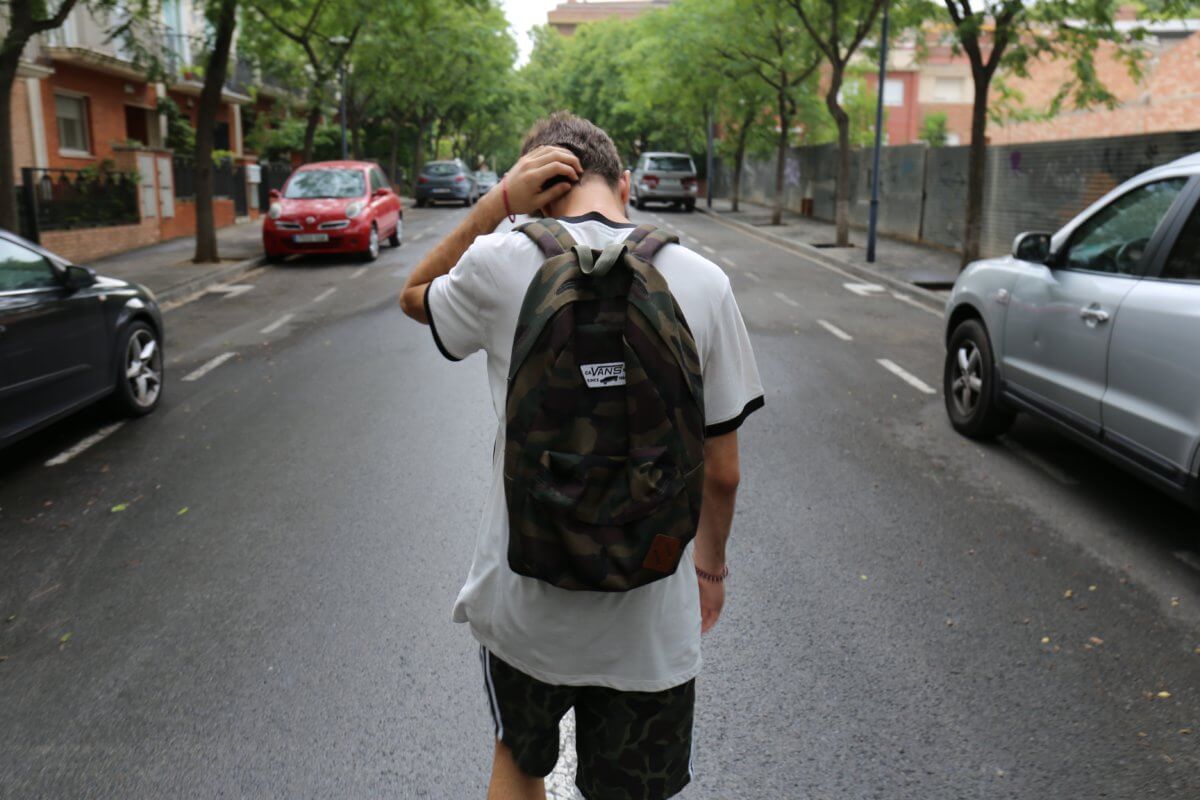
The idea of navigating our child’s adolescent years with grace and sanity is an aspirational goal for most parents. As an author and a lifelong meditator, I anticipated I was in for some bumps in the road, but that, armed with knowledge and tools, my girls’ pre-teen and teenage years couldn’t be that hard.
Oh, how naïve I was! I had no idea of the challenges I would face when the pre-teen years hit. If someone told me to “chill” at the moment, I noticed my 12-year old daughter’s shaved eyebrow and cut lip from her impulsive attempt at hair removal; I would have snapped. I would have probably used some inappropriate language to leave me alone. My daughter wept, and I shouted at her — it was only an hour later after the shock of her bizarre behavior had subsided, and I knew she was safe, that I took a deep, conscious breath and regretted my overblown, non-chill reaction. And, just when I thought I had mastered adolescent parenting, my younger daughter undermined my confidence with gloomy moods and emotional, teary outbursts that came at the most unexpected times. Let me assure you — we are all figuring out how to deal with our teens, and when it’s personal, frankly, no one is an expert.
Even still, let me attempt to share some of the lessons learned from both personal and professional navigation of the emotional pre-teen and teenage years.
Knowledge is Power
As parents, we are often surprised, nostalgic, emotional, shocked, and in denial about the fact that our sweet, precious baby is on their way to being a full-fledged teenager. Adolescence creeps upon us with the first signs of physical and emotional changes beginning even as early as 8 years old in girls (on the early end). The average age for girls to begin puberty is 11, and for boys is 12 years old. As parents, my guess is, none of us are every ready.
Puberty involves physical and emotional changes over several years, with areas of the brain also developing at different paces. For me, books like Brainstorm: The Power and Purpose of the Teenage Brain, by Dr. Dan Siegel and Decoding Boys: New Science Behind the Subtle Art of Raising Sons, by Dr. Cara Natterson (to be released early 2020) helped me to understand the science behind adolescent development. As a parent, getting an overview of what to expect and why your child may be sleeping, eating, and behaving differently is incredibly helpful when you think you are the only one trying to figure out just what is going on with your child.
When I wrote my book, Just Feel, I intended to present knowledge directly to kids about their physical and emotional development. It is empowering for kids to know that their body is changing, and they can make choices to feel better by sleeping more, moving, and eating healthy foods. It is also reassuring for kids to know that it is normal to have a range of emotions, that all feelings are natural, and that there are tools to process the lows (and highs) of life. If they know how they feel, they can make choices to act in ways to feel more in control of their life. Of course, this applies to parents as well as kids!
Be Present and Listen to Your Pre-Teen
Pre-teen and teenage years are both a lonely and exciting time of life. Kids are dealing with physical changes that they may not fully comprehend. They may feel frustrated by acne, self-conscious of their body, confused by mood swings, and just feeling misunderstood by everyone – most notably their family. They are questioning their beliefs and navigating more to their peer group as they figure out who they are. This can leave loving, devoted parents feeling bewildered, frustrated, unappreciated, and even angry.
When my cuddly little girl started to disappear into her room the minute she walked in from school, closing the door behind her, I began to feel left out of her life. With a deep breath, I had to remind myself time and again that this stage of her journey was about her, not about me. My role as a parent was to be present for her – with love and acceptance.
My husband and I still mandated family dinners, set limits on computer time and social media, and kept to appropriate bedtimes – we were her parents, after all. But there were things I knew I had to let her figure out for herself – things like changing dynamics with friends, letting go of an extracurricular activity I thought she loved but turned out she didn’t, or just wanting to sleep in until noon on a Sunday. I had to let go, let her feel the ups and downs of life, and figure some things out for herself.
On the rare occasion when she wanted to talk, I was overly eager to give her my opinions and advice. I soon learned that she would share more if I truly listened and heard what she was going through without judgment. If she felt like crying, I would hold her, resisting the desperate urge to find out exactly who had hurt her and how I could resolve her conflict. If she was happy and was randomly volunteering to cook dinner with me, I soaked in every minute of her presence without questioning why. I realized that being present meant, most often, not doing anything, but just being with her. Listening to her ups and downs, smiling at her funny stories, and letting her express her frustration at a teacher who said something that seemed completely innocuous to me.
Forgive – Yourself and Your Pre-Teen
After shouting at my daughter post the shaving-her-eyebrow stunt, I felt terrible. After all, my daughter was devastated by what she had done to herself and would have to live with the short term consequences before her hair grew back. She didn’t need my shock at her impulsive behavior added to her already regretful situation.
But that’s what happens — we, as parents, are humans, too. When it comes to our kid’s safety, we react with natural panic. When they are rude, we feel it is unacceptable behavior. When they roll their eyes at everything we say, we are angry, but also feel hurt.
In my experience, it is better, when the dust settles from a frustrating teen encounter, to take a deep breath, think about what happened, and reset the mood. This may mean forgiving yourself for shouting at your kid or forgiving your kid for acting in a way that you cannot comprehend.
Talking to your kid about your feelings, even if they seem not to be listening, can help build a bond with them. The key is not to blame them or burden them with your stress, but to find a way to express your feelings of frustration lovingly. When you have snapped at them, and feel bad even if it was justified, let them know it doesn’t feel good. When they have been rude to you, let them know that behavior hurts you. Be willing to forgive, even multiple times for the same offense, but also continue to share how you feel. In this manner, you will show them the power of sharing their feelings, of self-forgiveness, and processing their own stressful and regrettable situations of the future.
Find Your Stress Management Tools
As a parent, having ways to deal with stress can have a significant impact on your family’s wellbeing. Your pre-teen will observe how you deal with stress and will mimic similar behaviors as they figure out stress-management for themselves.
Find a regular exercise routine for yourself, explore yoga or meditation, or go for walks or hikes in your neighborhood. Model good sleep and nutrition. Know that watching your child grow through the often-difficult emotional stages of puberty brings up many feelings about your role as a parent. It is a time of accepting your aging, letting go, and grappling with what lies ahead for your family and you as an individual.
You will be your child’s most powerful teacher in how to deal with the range of emotions they will face throughout their lives by setting a good example for them. While you may feel excluded from their lives at times, now more than ever, you have an important role to play in their journey of self-discovery.
To learn more about Chopra’s books for teens, read about Learn To Meditate With Mallika Chopra’s New Book, “Just Breathe”
Mallika Chopra is a mom, author, and public speaker. Her most recent book is Just Feel: How To Be Stronger, Happier, Healthier and More, an illustrated guide for kids.





















